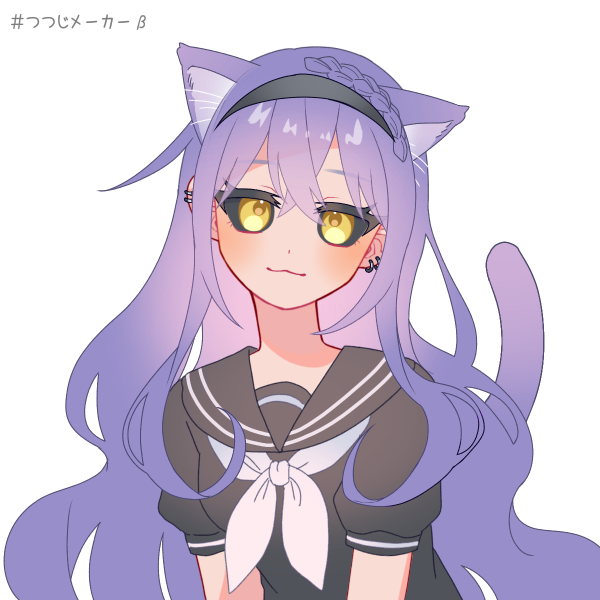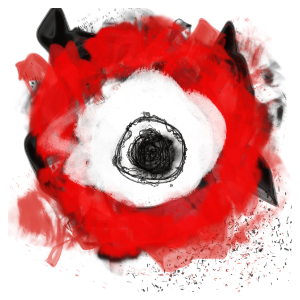Crkija (/t͡ʃɹ̩k.ijə/)
Zharmakojic, N.. Sociolinguistics in Crkvu. Hrofmig's Journal of Linguistics
Dialects
It's difficult to know exactly how many dialects exist in Crkija. Local dialects are a source of pride for the people, and a particularly astute traveler will be able to identify where someone is from based on dialect alone. The dialects can be generally classified into regional groupings. There isn't a standard dialect, but most foreign speakers learn a regularized form of Central Crkija. It's also sometimes known as Spoken Kosici named for the Standard Kostic script. There is considerable contention within Crkvu regarding the dialect groups. The names presented here are the most commonly used names within academic circles and outside of Crkvu. They do not reflect the view that many Crkskji have about their own dialects.Central Crkija
The dialects commonly referred to as Central Crkija are named due to their similarities to the dialect spoke in Gozhdova, the capital city. They refer to their own dialect group as North Crkija due to their location relative to where the original Swarvians settled. This region was also heavily influenced by increased international trade and occupancy during the Era of the Dragon Kings. When discussing animal husbandry and dragons in particular, speakers prefer to use terms borrowed from Modern Draconic These include pashkat, kazhektha, poj ralkin, and hakesket. There are a large number of villages along the coast of Tarmints strats who insist that they speak Coastal Crkija, but research into those specific dialects indicates that they are more closely related to Central Crkija dialects.North Crkjia
More accurately described as northern Crkija, the people in the northern districts of Crkvu refer to their dialects as being Central Crkija. This creates considerable confusion given the geographic presence of Central Crkija dialects. Central in this case refers to being in the relative center of Avzdavé compared to the rest of the country. During the Era of the Dragon Kings, the region had the least influence from Modern Draconic leading many speakers to believe that they still speak an older form of Crkija relative to the other dialects. This is especially common in Pali Dam where locals will often insist on speaking "True Crkija" due to the city never being occupied by a dragon lord.South Crkija
South Crkija dialects are noted primarily by their influence from the Vranian elves. Valjidia is the minority language spoken primarily by elves and half elves in the region, and there is debate about whether it is better regarded as part of the South Crkija dialects than its own language. It's characterized by having an ergative marker "-rejan" only in passive constructions such as "Mararejan cada neserijem Doreja." This is similar to elven languages which mark ergativity.West Crkija
The West Crkskji have larlgely attempted to insulate themselves from the politics and conflicts of the rest of the country. Their dialects, while somewhat influenced by Modern Draconic, seem to use both Draconic loan words and native Crkija words with equal frequency. Rather curiously, the West Crkija dialects share the most similarities with East Avzdavé where pronunciation is concerned, though this characteristic is both ignored and forgotten by speakers of Coastal and North Crkija dialects.Coastal Crkija
The original Swarvians who landed on Kos settled in the districts now known as Postamna strats and northern Ocestri strats. The people maintain that they still speak the original form of Crkija as spoken by the first settlers and refer to their own dialects as Crkija. This causes great confusion among foreigners to the region as Coastal Crkija is regarded as one of the most difficult dialect groups to understand. In their defense, they still use many terms which are considered archaic by other speakers. For instance, they use svratili instead of nomarije. Additionally, they are more likely to default to SOV word order which appears to be a development introduced by dragonfolk from Galag Rok.Markiji Crkija
A large minority population of lizardfolk from Nazara in Markiji has led to a unique dialect in the Marki region. Though classified as a dialect, it's nearly unintelligible to anyone except those from Ksjanovac strats in western Crkvu. It poses an interesting case where many loan words are conjugated and declined as though they were native sometimes leading to double declension, that is, an already inflected form of a word is inflected again for the same agreement. For example, instead of sidima, Markiji speakers use ustkolyetma in which "ustkolyet" is already an inflected form. "Kolyet" being the root word.Plozhitevji Crkija
Plozhitev borders Pulega and has a prominent Pulegski minority in the region. The most notable aspect of the dialect is its vocabulary, and speakers prefer using words that are more closely related to language spoked on the other side of the bay. The pronoun izhe in Central Crkija is aja in Plozhitevji. Those closely correlates to "Aya" in Po Maar. There is also a common occurrence of using VSO word order which is unusual, though permitted, in the rest of the country but the standard word order in Po Maar. For instance, "Nem raditsla bojanol" in the standard dialect becomes "Raditsa nam orasi" in Plozhitevji. "Orasi" is borrowed directly from Po Maar. Additionally, there is a simplification of second and third person singular conjugations.Non-Humanoid Speakers
Crkvu was originally founded by humans, but the Era of the Dragon Kings brought considerable trade and notoriety to the country. Dalnas in particular was known as a popular destination for dragons and their riders. Draconids frequently learned Crkija as a second or third language during this period, and following the collapse of Galag Rok, a large dragonfolk, kobold, and lizardfolk minority remained in the country. The longer oral cavity often gives them a more gutteral accent when speaking Crkija, and it's very common for draconids to struggle with labial sounds due to the stiffer lips. In particular this can cause issues with distinguishing between words such as bacila and vashima. Merchants and children typically have the easiest time understanding draconid speakers with monolingual adults having the least ability to understand draconid speakers.Crkija Abroad
While trade with the Vranian elves has fostered an environment where many elves learn Crkija to a conversational degree, following the Otorim-Crkvim War, Crkija in Otorveia has dwindled significantly. There are still some clusters of speakers in Nazara, but the language is looked upon unfavorably and is at risk of dying out entirely within the next couple generations. Pulega, following their declaration of independence in 477 IA began an intense system of education reform to establish Pulegja as a distinct language from Crkija. Pulega enacted laws for spelling reform, though the two languages remain mutually intelligible with few linguistic differences. In some schools, Pulegja is still taught as a dialect of Crkija. In the Free States of Monstvanka, Crkija remains one of the unofficially recognized languages. It's commonly taught by tutors, and many people throughout the region learn a few phrases and visit Crkvu for leisure. A new dialect has been emerging among these speakers which is similar to the Northern Crkija dialects while containing its own syntax and phrases borrowed from Stvankija.Writing Systems
Crkija and other languages in the Dwarrow-Kostic family have traditionally used Dwarven scripts for writing. The Standard Kostic script which was introduced in 555 EDK became the official script until the end of the Third Dragon War. There was considerable contention between using diacritics and digraphs when representing /t͡ʃ/, /t͡s/, /d͡ʒ/, /ʃ/, and /ʒ/. While a preference for the characters c, ts, dz, sh, and zh are the standard now, there are still several older texts that use č, ţ, ź, š, ž. Upon Crkvu gaining independence after the Third Dragon War, there was a strong nationalistic push to return to using Dwarven scripts. "Crkici jedom Crkskji" became a popular slogan as the dwarven script was reestablished. The Standard Kostic script became known as Kosici. It's commonly taught and used by foreigners. Though still regarded as one of the official scripts of Crkvu, Kosici is rarely used outside of official documentation and for second language instruction. Newsletters, books, and advertisements are all written in Crkici. It's worth noting that in Pulega, Kosici is used almost exclusively as a way to further distinguish itself from Crkvu.History
Low Swarvian
Prior to the Death of Durgurath, the Swarvians lived at the foothills of the Redaska Mountains. There was considerable trade between the two groups, and initial isolation from other human settlements caused the language to adopt more dwarven characteristics. In particular, they adopted many dwarven terms relating to stonework, fungi which formed a staple part of dwarven cuisine, and animals that were unique to the mountains. Initial explorers from Intawenshevis initially believed that Low Swarvian was a dwarven dialect, but further research in the later years of the empire discovered that Low Swarvian was descended from Rilic. When they were forced to flee due to the blight, the Swarvians followed the Borei River south to the Great Southern Ocean and originally landed in Zaurrniqibul. They were forced to continue fleeing north across the Dragon Sea and landed in the region they would call Avzdavé.East Avzdavé
Avzdavé covered the region south of the Uk Qezin Desert in the north, the Vrania Forest in the south, Nazara in the west, and the Bay of moh Urvandi in the east. The Swarvians settled in the region and quickly spread out. East Avzdavé was first recognized by the Vranian elves, and the language was heavily influenced again by elven contact. Many of the early loan words were originally elvish. In particular, this added new terms to describe agriculture, forestry, and the wide range of animals native to Kos. Crkvu initially grew as a nation-state along the northern border of the forest and maintained positive and robust connections with the elves. By the time the first dragon lords invaded Kos, East Avzdavé was clearly a distinct language from North Avzdavé which inherited more centaur influence but remained much closer to Low Swarvian. Both languages received recognition as official local languages in southern Kos formalizing the distinction. The language began to undergo several radical changes as a result of increased foreign influence into the region. Modern Draconic was associated with nobility, and a large number of merchants and local lords who swore fealty to the dragon kings learned Modern Draconic. Within a century, it became common for the upper classes in Crkvu to speak Modern Draconic better than Crkija. The influence of the dragonfolk on Crkija was especially prominent in central Crkvu. There, many commonfolk began using Modern Draconic terms in their own speech and adopting a different word order as the standard.Modern Crkija
Though the first records of modern Crkija are from 319 EDK when tax collectors sent by Hasku King reported back on their interactions with their subjects, the first clear descriptions of vocabulary and grammar are from 508 EDK when Kalashar King visited Crkvu and wrote about the variety of dialects found in the country. He noted the following:Each village, nay, each person has their own way of speaking yet they all understand those closest to them with relative ease. I have learned that "Balja deš" is "good day" and they use "goritemli" to refer to both dragons and drakes. I also heard "goritjeli" and "gorateli" in my travels all in reference to my beloved Takarnik.Under Kalashar King, scholars were sent to Crkvu to make more detailed analyses of the dialects. This formed the basis of Chirkat vad Khamdevek, the first attempt at writing a grammar of Crkija. By 891 EDK, Crkija was on the decline in urban areas. Crkskji nationalists began a revival movement of the language and frequently referenced back to Chirkat vad Khamdevek as a way to teach themselves their own language. In rural parts of Crkvu, particularly in the northern regions, Crkija was still the primary spoken language with Modern Draconic being seen with disdain. Balinjec located in what is today Postamna strats, was the epicenter of the "Odoma Crkija" movement and believed that they could go back to speaking the original Crkija as spoken by the East Avzdavé. After the collapse of Galag Rok at the end of the Third Dragon War, Crkvu declared independence, and the Odoma Crkija movement gained widespread popularity throughout the country. Within a generation, all but the staunchest monarchists favored using Crkija. One component of the movement promoted the local dialects over a standardized form of the language which had been used under the dragon kings. As the Crkskji rediscovered their national and ethnic identity, they latched onto regional dialects with fervor. This became especially true in the Marki, Plozhitev, and Pulega districts. The ethnic minorities there sought to further distinguish themselves from the dominant Crkskji and started their own movements for national independence. But, in 474 IA, an army from Otorveia marched through Nazara and declared war on Crkvu. The Battle of Mazadska River in Marki strats opened the Otorim-Crkvim War. The Crkskji rallied behind the lizardfolk, and the war put many of the ethnic tensions on pause while they fought to defend their homes. The war ended in 477 IA at the Battle of Rasena Island, and six major cycles later, Pulega declared independence and started the Crkvu Civil War. The war ended in 480 IA following general fatigue from the people of Crkvu and resulted in the recognition of Pulega as an independent state. As part of the negotiations, Plizhotev remained as a district within Crkvu, and Zlastinin sterats and Sadislev sterats were recognized as having significant Crkskji minorities in the newly formed Pulega. There remains to be considerable tension in Pulega with attempts to force the Crkskji minorities to only speak Pulegja, and in Plozhitev, there is a small extremist movement to have their dialects recognized as being a separate language called Plozhitevji. This isn't a recognized language anywhere outside of Plozhitev, and Crkija speakers outside of the region maintain that Plozhitevji is still a Crkija dialect, albeit less intelligible than many other dialects.
L2: 2.1 million
- Evirtic
- Western Evirtic
- Dwarrow-Kostic
- Rilic
- Low Swarvian
- East Avzdavé
Grammatical Notes
Crkija permits free word order. For the purposes of clarity and regularity, I have chosen to present sentences in SVO word order. Vocabulary is drawn primarily from Spoken Kosici except where otherwise indicated. Please see the appendix for pronunciation and additional phrases.Phrases
*Sentences from TwoLango's Crkija courseGospoditsi mazhda utsalinash prospotel.
/gos.po.di.t͡si maʒ.da ut.sa.li.naʃ pros.po.tɛl/
The tremble bear is drinking beer.
Krajdmeni, izhe vaj azplajel.
/kraɪd.mɛ.ni i.ʒe vai az.plai.jɛl/
Excuse me, I am a plum.
Nikola prasdulem baritsel do tarminaj.
/ni.ko.la praz.du.lɛm ba.ri.t͡sɛl do tar.mi.naɪ/
Nikola is eating celery in the rain.
Izhe vaj dvrnataju, bogom snaju van procelinash.
/i.ʒe vaɪ dvr̩.na.taɪ.ju bo.gom snaɪ.ju van pro.t͡ʃɛl.i.naʃ/
I am crying, and the onion is laughing.
Vazh nem zelmenit? Nije.
/vaʒ nɛm zɛl.me.nit ni.je/
Are you happy? No.
Izhe ni zhivotjuni nebe podaj izhe cidiju drzvenkulen do osortelimaj.
/i.ʒe ni ʒi.vot.ju.ni nɛ.be po.daɪ i.ʒe t͡ʃi.di.ju dr̩ʒ.ven.ku.lɛn do o.sor.tɛ.li.maɪ/
I do not hear you because I have squash buns in my ears.
Znaj goriteli cada prasdulas Nikolel, ino lavete v Ekkino.
/znaɪ go.ri.tɛ.li t͡ʃa.da praʒ.du.las ni.ko.lɛl i.no la.vɛ.te vɛ.ki.no/
After the drake had eaten Nikola, it flew to Ekkino.
Vankja znam pra ziravdiljeli do Vajsa.
/van.kja znam pra. zi.rav.di.ljɛ.li do vaɪ.sa/
Are there still pirates in Waisa?
Ushta azplaj van jaceni?
/uʃ.ta az.plaɪ van ja.t͡ʃe.ni/
Why is the plum wet?
Nem ni cidslani bozlaveslani tsartsije.
/nɛm ni t͡ʃid.sla.ni boz.la.ve.sla.ni t͡sar.t͡si.jɛ/
You have not understood anything.
Izhe ni vajni radzjel.
/i.ʒe ni vaɪni rad.zjɛl/
I am not a dwarf.
Izhe crenaju poj darvu srci lakradelja.
/i.ʒe t͡ʃrɛn.aɪ.ju poɪ dar.vu sr̩.t͡ʃi la.kra.del.ja/
I want to eat more potatoes.
Dialectal Slang
CENTRAL CRKIJAPodak: Fire breath; Angry
Diti kam: Cat barber; someone who isn't doing anything worthwhile
NORTH CRKIJA
Tsertsaja dobrotilja bogom dostojtilja: Raining buckets and brooms; Pouring rain
WEST CRKIJA
SOUTH CRKIJA
Launinkoimas: Bluebird; Handsome man
Radelievanisen: Tree Tall; Courageous
Minusaika vai lukaris olinvalind: To grow the withered vine; To be lucky
COASTAL CRKIJA
Emvralteorsmid: Ruby goldsmith; Swindler
Stirnaslosh: Silver Slag; Unexpected
Cittar tungi boda langi: To cut deep and wide; To be hard-working
MARKIJI CRKIJA
Khorvati ceno levji nomarijej: To pour wine into a lake; be wasteful
PLOZHITEVJI CRKIJA
Iperu: Legs; Child
Su kalika meanalia vaigo speralia: To beat wheat into beer; To make more work for yourself
Su simarika gestem larinbog: To swim along the shore; To go nowhere
Vretna Ponaj bogom Agapa (The North Wind and the Sun)
*Text and translation courtesy of An Essential Grammar to Crkija*insert recording here*
Crkija





Oh yes, that was such a good dive into the language and the dialects including the IPA. The editors notes surprised me in a good way. You up the game to a whole new level and I really dig it. Great work. :)
Thank you! I'm so glad you enjoyed it, and the editors notes are still one of my favorite parts of the article.